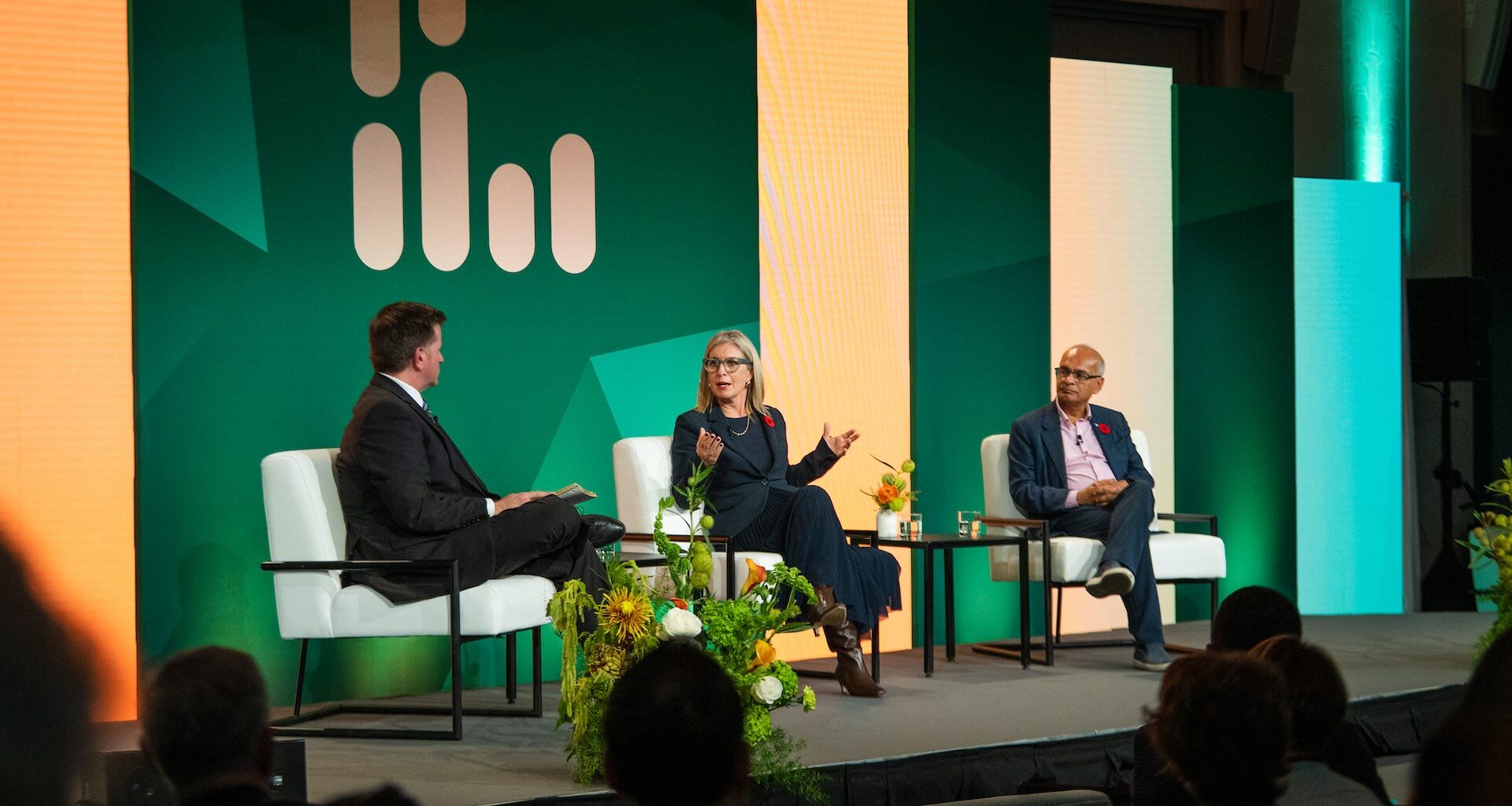TORONTO — Canada must make itself more welcoming to top academic talent, University of Toronto president Melanie Woodin has said, as universities attempt to woo researchers who are concerned about political instability in the United States.
Woodin hopes that the federal government announces immigration measures in this week’s budget to make it easier for in-demand researchers like quantum physicists to get on paths to permanent residency in Canada, something she said is virtually impossible under current policies.
“We had one of the greatest immigration systems in the world,” said Vivek Goel, president and vice-chancellor of the University of Waterloo, at The Logic Summit in Toronto on Monday. “The original points-based system was really based on if you were a top faculty member of any discipline. You were going to get points on that. But it got distorted over the years.”
Canada is one of many countries that sees a window to poach top university talent from the U.S. “They’re talking to top institutions in Canada, the U.K., around the world, and we need to marshal all of our resources,” said Woodin.
During U.S. President Donald Trump’s first administration, U of T was able to hire professors like Alán Aspuru-Guzik, who left a tenured position at Harvard in 2018 to join U of T’s chemistry and computer science departments, citing government research support as a factor. Aspuru-Guzik’s interest in Canada was piqued almost immediately after Trump was elected in 2016, but it took about a year and a half to pull together a hiring package, said Goel, who at the time was U of T’s vice-president of research and innovation.
Now, the U.S. Department of Government Efficiency, or DOGE, has made deep cuts to research grants, while Trump has pushed to defund universities and deport students involved with pro-Palestinian protests. That has prompted some academics to explore their options.
But Woodin and Goel said Canada faces its own funding and immigration-policy challenges if it wants to recruit more talent like Aspuru-Guzik.
U of T relies on partnering with U.S. universities or federal research agencies for about $20 million in annual funding, and in Woodin and Goel’s home base of Ontario, tuition freezes have drained university budgets.
Meanwhile, international students aren’t applying for student visas in Canada at the same rate, as the government has slowed permit approvals. While the government has been trying to curb applications to certain private colleges that it sees as diploma “mills” rather than universities, Goel said that students abroad may not appreciate that distinction, and hold-ups apply to students and teachers alike.
“A colleague has been waiting two years for a work permit for top faculty,” said Goel. “That sends out a signal that it’s not a welcoming place.”
Top AI researchers like U of T professors Geoffrey Hinton and Raquel Urtasun, who were recruited to Canada from abroad, were working on key technologies long before they reached any sort of commercial success, the university leaders noted.
“We should always be welcoming brilliant people,” said Goel.
Read more from The Logic Summit 2025 here.

